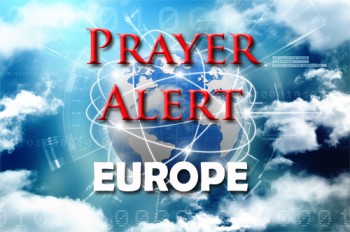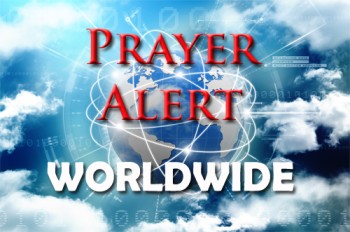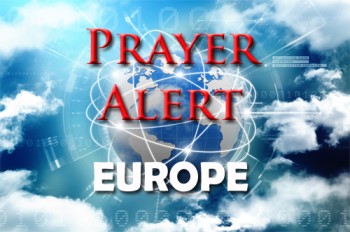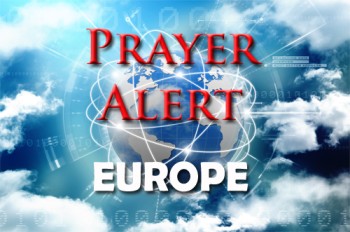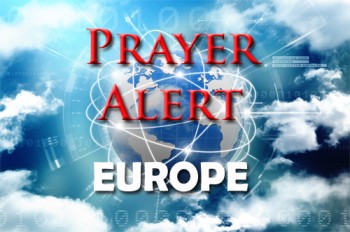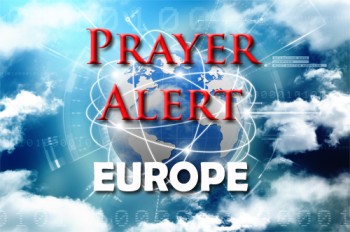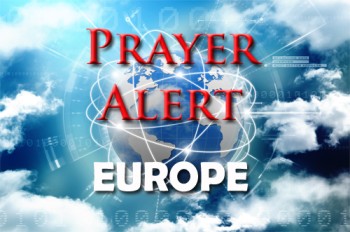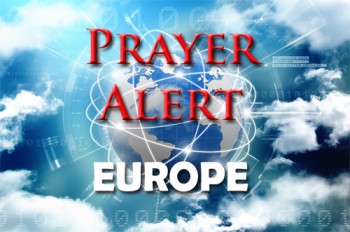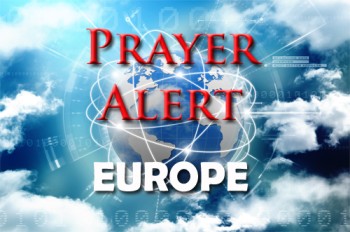Displaying items by tag: Europe
Southern Baptists bring timeless message to Winter Olympics
Southern Baptists are seizing a remarkable evangelistic opportunity as the 2026 Winter Olympics unfold in Milan / Cortina. International Mission Board (IMB) missionaries serving across Italy have partnered with hundreds of American volunteers to proclaim the hope of Christ to the nations gathered for the Games. Outreach strategies include distributing Bibles and copies of John’s gospel, hosting welcoming hospitality points, and engaging in Olympic pin trading – each pin carrying a QR code linking to a multilingual gospel presentation. Kim Cruse of Tennessee is leading a team and encouraging bold, faith-filled conversations, reminding volunteers that many people are more spiritually open than we assume. Teams have prepared using AI chat tools to practise engaging with varied worldviews. Missionaries Dylan and Isaura Jeronimo-Lancaster are welcoming faithful church partners, reflecting the power of long-term collaboration. Volunteers testify that such global events offer a rare, God-given opportunity to impact lives from every continent with the timeless message of Christ.
Spain / Portugal / Morocco: severe storms contrast with extreme cold in north and east Europe
Severe storms across southern Europe and north-west Africa have forced mass evacuations and widespread emergency responses. Storm Leonardo brought intense flooding to Spain, Portugal and Morocco, with rivers reaching record levels and transport disrupted. In parts of southern Spain thousands fled homes, while northern Morocco evacuated over 140,000 residents as dams filled and rainfall continued. Mountain areas recorded extraordinary totals in little more than a day. A second system, Storm Marta, though less intense, added further rain, strong winds and coastal waves. This contrasts sharply with northern and eastern Europe, where persistent high pressure caused extreme cold and record low temperatures. Meteorologists say the unusual pattern has lasted weeks, steering storms south while trapping cold air elsewhere. Although the rainfall has eased drought conditions in Morocco, communities now face recovery, displacement and rebuilding after damage and loss. Update: Portugal’s interior minister has resigned after criticism of her handling of the storms. See
Italy: sabotage attempts during Winter Olympics
Suspected sabotage on northern Italy’s railway network caused major disruption as crowds gathered for the opening of the Winter Olympic Games. Authorities reported several coordinated incidents, including fires on rail infrastructure, severed electrical cables and a rudimentary explosive device near Bologna, a key national transport hub. Delays stretched for hours across routes linking major cities such as Venice and the Adriatic coast. Officials described the attacks as serious and possibly intended to coincide with the international event, drawing comparisons with similar disruption during the Paris Olympics in 2024. No group has claimed responsibility, and investigations continue while services return to normal. Despite the tension, ceremonies proceeded across multiple venues in Milan and the mountain regions. Italy had earlier foiled cyber-attacks, claimed to be of Russian origin: see
Ukraine: thousands without electricity as peace talks continue
Renewed Russian attacks on Ukraine’s energy infrastructure have left millions without power during freezing winter conditions. Volodymyr Zelensky said more than two hundred repair crews are working around the clock in Kyiv, where over 1,100 apartment buildings remain without electricity. Elsewhere, cluster munition strikes in eastern towns such as Druzhkivka killed civilians and injured many more. The attacks, whose effect was exacerbated by temperatures as low as -20C, followed a week’s pause requested by Donald Trump. Families have sheltered in metro stations, warming centres and makeshift tents as generators are brought in. Energy officials warn repairs will take time, with some key facilities severely damaged. The governor of a Russian town near the border said work was continuing to restore power and water services following a Ukrainian missile strike there earlier in the week. While US, Ukrainian and Russian representatives meet again in Abu Dhabi to discuss a peace plan, there are few signs of progress. As winter deepens, ordinary Ukrainians face exhaustion, grief, and uncertainty alongside continuing violence.
Norway: crown princess’s son on trial for rape
The trial of Marius Borg Høiby, who is the son of crown princess Mette-Marit, has opened in Oslo, drawing national attention. The court heard emotional testimony from the first woman who alleges she was raped at a party in 2018, describing fragmented memory and distress at being drawn into a long-delayed legal process. Borg Høiby faces 38 charges, including four counts of rape, which he denies, maintaining that all encounters were consensual. The alleged incidents occurred after initial consent, with prosecutors arguing that the women were later incapacitated and unable to resist. Although he is not a member of the royal family, the case has intensified pressure on the palace, particularly regarding past links between the crown princess and Jeffrey Epstein. Strict reporting restrictions are in place as the court weighs evidence, credibility and responsibility, in a case that has stirred debate about power, consent, justice and public trust.
Greece: smugglers blamed for fifteen deaths after speedboat collision
The deaths of fifteen Afghan and Moroccan migrants after a speedboat collision on 3 February with a coastguard boat have raised troubling questions about accountability at sea. The Greek authorities were quick to blame smugglers, saying the migrant vessel ignored warnings and manoeuvred dangerously. Yet critics urge caution, pointing to past incidents where official explanations later unravelled. In 2023, hundreds of migrants died when the fishing boat Adriana sank, initially described as unavoidable, before survivors alleged coastguard involvement. Years later, senior officers now face prosecution. In the current case, no testimonies from survivors have yet been made public and no independent video evidence has been released, so that there is uncertainty about what truly happened in the darkness. Greece remains a major entry route into Europe, while its government pursues a tough deterrence policy praised by some voters but condemned by human rights groups. The tragedy highlights the ongoing human cost of migration and the need for truth, transparency and compassion.
Russia: new report estimates over one million casualties in Ukraine war
A new report from the Centre for Strategic and International Studies estimates that around 1.2 million Russian troops have been killed, wounded or gone missing since the invasion of Ukraine nearly four years ago. Despite this enormous human cost, Russia has expanded its control of Ukrainian territory by only about 12%: in the past two years, only by 1.5%. The statistics challenge assertions that a Russian victory is inevitable, noting that Ukraine’s defensive strategy of trenches, mines, obstacles, drones and artillery has limited Russian advances to minimal gains. Mark Rutte has said that in December alone Russia lost 30,000 soldiers (in Afghanistan, they lost 20,000 in ten years). The toll far exceeds Russia’s losses in all its post–World War II conflicts combined. Economically, the war has weakened Russia’s long-term prospects, slowing growth, deepening labour shortages. The war is burdening the not only the current Russian economy but its future prospects, the report says: the country ‘is becoming a second- or third-rate economic power’. Yet Putin is unlikely to settle for a peace deal without further Western pressure on his regime.
Russia: the Arctic is both opportunity and threat for Putin
The Arctic occupies a central place in Vladimir Putin’s strategic thinking, combining vast natural resources with critical military importance. Russia controls more than half of the Arctic coastline and sees the Northern Sea route as a future rival to the Suez Canal, especially as melting ice opens new shipping lanes. Western sanctions since the invasion of Ukraine have increased Moscow’s reliance on Arctic energy exports and on China as an investor and customer. At the same time, climate change threatens Arctic infrastructure built on thawing permafrost, raising risks of environmental disasters and disease. Militarily, the region underpins Russia’s nuclear deterrent, with key submarine bases on the Kola Peninsula protected by layered defences. Yet NATO’s growing presence and China’s expanding role complicate Putin’s ambitions. The Arctic promises power and prestige, but it is also increasingly unstable and contested.
Greenland: Trump drops tariffs threat after meeting Rutte
Tensions between the USA and Europe eased after Donald Trump reversed his threat to impose tariffs on European countries over Greenland and ruled out using force to seize the territory. Speaking in Davos, Trump said a new ‘framework’ had been agreed with NATO secretary-general Mark Rutte, focussing on Arctic security, minerals, and defence cooperation. While details remain vague, the move paused a looming trade dispute that had shaken transatlantic relations and raised fears about NATO’s future. Denmark welcomed the de-escalation but reaffirmed that Greenland’s sovereignty is non-negotiable. European leaders cautiously praised the shift, seeing it as a step away from confrontation. Analysts, however, do not believe that trust can be fully restored, warning that relations may stay fragile, with trade and security tensions ready to resurface.
Spain: at least forty dead after high-speed train crash
Spain has entered a period of deep national grief following its deadliest rail disaster in more than a decade. A high-speed collision near Adamuz in southern Andalusia claimed at least 41 lives, with fears that the toll could still rise as recovery work continues. Two trains derailed on 18 January after one strayed into the path of another, and investigators are carefully examining the scene, focusing on a carriage believed to have derailed first. The transport minister said that experts were extremely surprised because it happened on a flat stretch of track which had been renovated in May. Mechanical failure is being considered; sabotage, human error, and excessive speed have been ruled out. Local residents were among the first to help the injured, facing scenes of profound trauma. As families wait anxiously for news and many remain in hospital, the country is observing days of mourning, united in sorrow and still searching for answers.

